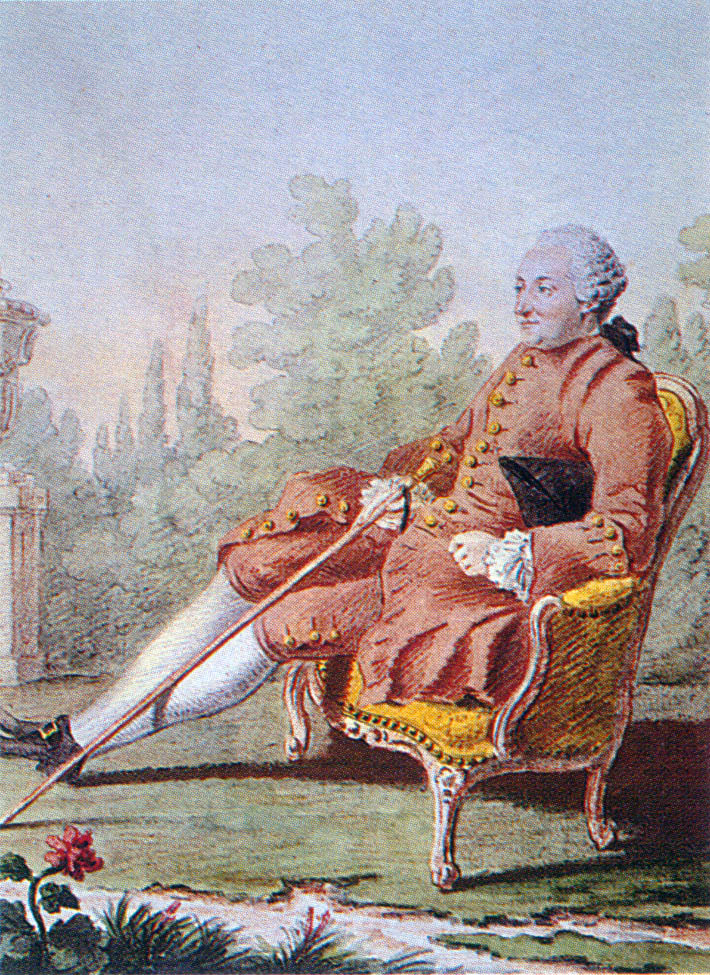Paul-Henri Thiry, Baron d’Holbach was a philosopher, translator, and prominent social figure of the French Enlightenment.
Holbach made significant contributions to the European Enlightenment in science and religion. He translated German works on chemistry and geology into French, summarizing many of the German advances in these areas in his entries in Diderot’s Encyclopedia. Holbach also translated important English works on religion and political philosophy into French.
Holbach remains best known for his role in Parisian society. The close circle of intellectuals that Holbach hosted and, in various ways, sponsored produced the Encyclopedia and a number of revisionary religious, ethical, and political works. Holbach’s broader visiting guest list included many of the most prominent intellectual and political figures in Europe. His salon, then, was at once a shelter for radical thought and a hub of mainstream culture.
French nobles, as well as ambassadors from countries across Europe: Denmark, England, Naples, Saxe-Gotha, Saxe-Coburg-Gotha, Wurtemburg, and Sweden attended his dinners. So did prominent intellectuals of all kinds, including, at different times and with different degrees of enthusiasm, the philosopher and novelist Jean-Jacques Rousseau, the mathematician Jean Le Rond d’Alembert, the historian Edward Gibbon, the writer Horace Walpole, the chemist Joseph Priestley, the social critic Cesare Beccaria, the philosopher Nicolas-Antoine Boulanger, the statesman and scientist Benjamin Franklin, the actor David Garrick, the philosopher Claude-Adrien Helvétius, the philosopher David Hume, the economist Adam Smith, and the novelist Laurence Sterne.
Holbach was born in 1723 in Edesheim. He was raised in Paris, principally by his uncle, Franciscus Adam d’Holbach, and attended the University of Leiden from 1744 to 1748 or 1749. Holbach particularly enjoyed the parties there. It is likely that, at least at first, the dinners Holbach gave in Paris were modelled on the parties he attended at Leiden. In 1749, Holbach married his second cousin, Basile-Geneviève d’Aine. About 1753 or 1754 both his uncle, Franciscus, and his father in law died, leaving Holbach a considerable fortune.
Holbach used his great wealth to throw the dinner parties for which he is famous. He owned a house in Paris in rue Royale, Butte Saint-Roch, which, generally, had a guest list restricted to serious intellectuals, and a chateau at Grandval.
Holbach was known in France as le premier maître d’hôtel de la philosophie. Many in Paris coveted invitations to rue Royale, and Holbach’s house was the first stop for many prominent international visitors.
